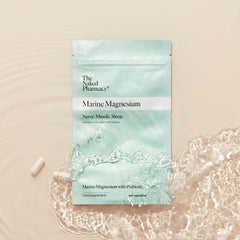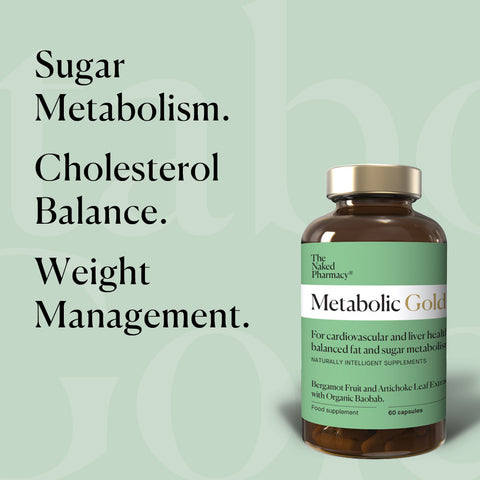Clear the mist - How to combat brain fog
Many of us have experienced moments where our mind feels clouded, making concentration and memory recall more challenging than usual. This is commonly referred to as brain fog and can be very frustrating to deal with. While it’s not a medical diagnosis in itself, brain fog is a symptom that can significantly impact your quality of life.
What is brain fog?
Severe brain fog can be debilitating, particularly if you need to function day-to-day in a high-performance or pressured environment at home or work. It can affect your levels of confidence, self-esteem and performance.
Brain fog causes
Many factors can contribute to brain fog such:
Lifestyle Factors: Poor sleep quality, lack of exercise, and a nutrient deficient diet.
Medical Conditions: Chronic fatigue syndrome, fibromyalgia, anaemia, depression, thyroid disorders. diabetes and post viral syndrome are among the conditions associated with brain fog.
Medications: Certain medications can affect cognitive function as a side effect.
Stress and Mental Health: High-stress levels and mental health issues like anxiety and depression are closely linked to brain fog.
Other factors that can affect brain fog are age, hormonal changes, nutritional deficiencies, and even the aftermath of conditions such as COVID.
Brain fog symptoms
Brain fog manifests as cognitive impairments including:

- Mood swings
- Lack of focus
- Irritability
- Confusion
- Trouble sleeping,
- Low energy or fatigue
- Forgetfulness
- Trouble concentrating
- Low motivation
- Difficulty making decisions
Menopause brain fog
Brain fog during perimenopause and menopause is a real and sometimes challenging symptom faced by many going through the hormonal transition.
Hormonal fluctuations - particularly a decrease in oestrogen and testosterone - are believed to play a critical role in this. When the levels of these hormones begin to fall during perimenopause and menopause, you can experience a range of cognitive symptoms including memory loss, difficulty staying focused, losing your train of thought, and getting confused easily.
Oestrogen is involved in regulating neurotransmitters that affect cognition, including serotonin and dopamine. As these hormone levels fluctuate, so does the clarity of thought, making brain fog a frequent complaint amongst menopausal women.
Testosterone strengthens nerves in the brain and contributes to mental sharpness and clarity, as well as overall energy levels. It also strengthens arteries that supply blood flow to the brain, which is crucial to protect against loss of memory.
Brain fog is very common. In research conducted by the British Menopause Society, almost 40% of the women interviewed reported issues with memory and concentration as they go through the menopause.*
*Menopause - Understanding the impact on women and their partners.
The COVID connection
Post-COVID brain fog has emerged as a lingering symptom for many individuals recovering from the virus due to consequences such as inflammation and the overall stress of dealing with the illness.
In one study, 7.2% of people who reported having long COVID experienced brain fog, and this symptom was more common in those who had a more severe case of COVID-19.
Stress

Chronic stress can increase blood pressure, weaken the immune system, and trigger depression. According to a study undertaken in 2017, stress can also cause mental fatigue.
Chronic stress leads to sustained high levels of cortisol, the body's stress hormone. High cortisol levels can impair cognitive function such as memory and concentration, contributing to brain fog.
Stress can also disrupt the balance of neurotransmitters, such as serotonin and dopamine, which play crucial roles in mood regulation, focus, and cognitive processing. Imbalances in these chemicals can lead to difficulties in concentrating and memory lapses.
Chronic stress is linked to increased inflammation in the body, which can negatively affect brain function and lead to symptoms of brain fog.
Medications
Brain fog is a known side effect of certain medications, such as certain painkillers, antidepressants and sleep medications.
Brain fog can also occur after cancer treatments. This is often referred to as ‘chemo brain’.
Sleep
The NHS recommends that adults should aim for 7 – 9 hours of sleep each night. However, Nuffield Health surveyed 8,000 adults in the UK and found that most adults are getting an average of 5.9 hours of sleep every night in 2023.
Poor sleep quality and sleep deprivation can significantly contribute to cognitive impairments, including reduced attention span, memory issues, and decreased mental clarity.

How to clear the fog
Brain fog can be frustrating, but relief is possible. You should not ignore your symptoms because, if left untreated, brain fog can impact your ability to function and undertake tasks.
Addressing brain fog involves treating underlying causes or making lifestyle changes to improve cognitive function, these include:
Sleep: Ensuring adequate, high-quality sleep can significantly reduce symptoms of brain fog. Aim for 7-9 hours per night and maintain a consistent sleep schedule.
Nutrition: A diet rich in fruits, vegetables, whole grains, and omega-3 fatty acids (found in fish) can support brain health. Avoiding excessive alcohol, sugar, and processed foods is also advisable.
Exercise: Regular exercise increases blood flow to the brain and has been linked to improved cognitive function. Activities like walking, swimming, and yoga can be particularly beneficial.
Stress Management: Techniques such as mindfulness, meditation, and yoga can reduce stress and improve mental clarity.
Hydration: Adequate hydration is crucial for maintaining cognitive function. Aim for 8 glasses of water daily.
Mental Stimulation: Engage in activities that challenge your brain, such as puzzles, learning a new skill, or reading.
Magnesium
Magnesium is an essential nutrient that plays a pivotal role in over 300 physiological processes in the body, including those involved in energy production, sleep quality, and the regulation of neurotransmitters. It’s, therefore, no wonder that magnesium has been identified for its potential to alleviate brain fog.
Magnesium aids in improving brain function by supporting the nervous system, enhancing sleep quality, reducing inflammation, and reducing stress levels—all factors that can mitigate the symptoms of brain fog. For those individuals navigating menopause, magnesium's role in balancing hormones further highlights its significance.
Marine magnesium supplements
Marine Magnesium can help to restore clarity for anyone experiencing brain fog. Our bodies require this micromineral to function healthily however our bodies do not synthesise or store magnesium. It is therefore essential that we get an adequate daily intake from our diet or high-quality food supplements.

“There are so many magnesium supplements on the market, which one should I choose?”
We understand how overwhelming it can be when deciding on which Magnesium supplement you should be taking. The key to selecting the most suitable supplement lies in understanding the difference in the quality and purity of the different supplements available.
Our Marine Magnesium is sourced from purified seawater and is in the form of magnesium hydroxide. Due to its natural and pure source, it is quickly absorbed by the body making it more effective and very gentle on the stomach.
Marine Magnesium contains only 3 ingredients:
- Magnesium (from seawater)
- Organic baobab (natural prebiotic)
- A natural, tapioca capsule shell.
Most other magnesium supplements such as magnesium glycinate, citrate, picolinate and taurate are synthetic and manufactured using chemicals and often contain numerous additives, fillers and bulking agents.
Like your food, it is best to avoid supplements that are overprocessed and contain unnecessary additives that can often affect the supplement's effectiveness and even be harmful to health. Remember to always read ingredient labels to help you choose your supplements wisely - choose NAKED.

Best magnesium supplement
Marine Magnesium has been voted as one of the best magnesium supplements by experts in The Independent. Maz Packham, a nutritionist says:
This supplement (Marine Magnesium) is made from pure seawater plus it has added prebiotic to support the gut. The only other ingredient is its tapioca shell.
Best magnesium supplements, approved by experts | The Independent
Shop Marine Magnesium now
Call our Pharmacists if you have concerns
If you have any concerns about brain fog or any other health conditions, please call our pharmacists for free advice. (+44) 01483 678 438
Dimple Varu

Dimple is a pharmacist with 12 years of experience working in retail and general practice and now specialises in providing education and advice on natural supplements.
She believes in the power of nature and using natural existing compounds to enhance our health, whether that’s treating pain or helping to prevent long-term conditions. Mum of 1, living a busy life, loves reading and baking if she has the time.




























